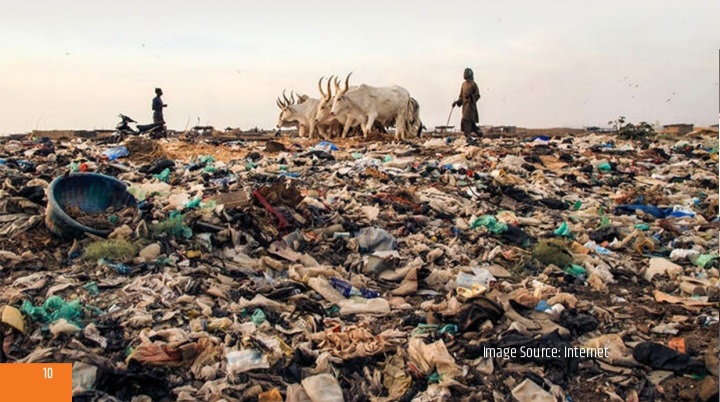Pollution, as it is, is a danger to all living species in Lupane, and is characterized by land pollution, or let me say, every space is a dump site. This is evidenced by litter, which includes used pampers and pads, tissues, plastics and tins. The land is used as a toilet, and this is a cause of concern in the health sector. The environment for Lupane is unsafe for anyone living in their environment as there are high chances of disease development. The litter and other waste products are disposed of in dams and additional water sources, making them unsafe for use and drinking. The litter services are inferior because they only focus on growth points like Lupane Centre and do not reach the residential areas to collect litter. Even when they gather, most garbage is left due to the demand for waste being put on plastic papers, and the trash is not collected for those who do not meet these demands. This demand is brutal, as people cannot afford to buy a plastic paper while paying for these services. It is a sign of corruption on its own.
Therefore, this results in people disposing of their litter on unoccupied land and any available free space. Furthermore, most residents do not have toilets, so people use bushes to relieve themselves. The Lupane population is unsafe primarily during the rainy season, when the waste is washed into water bodies where people consume the water for different uses; hence diseases like cholera have a high chance of developing and spreading. The land pollution found in Lupane is eye sore as it disturbs the natural beauty of the general because of a lack of concern for the need for a healthy environment. The relevant stakeholders responsible for environmental cleaning fail to do their expected duties. Instead, they fail to follow up on these issues that endanger people’s lives. To share my thoughts, I suggest strategies like sharing the days for litter collection, offering a space of land to put litter in the service collected that place, showing plastic bags to put garbage, recycling recyclable waste, and installing sewage systems for people to install toilets in their homes.

